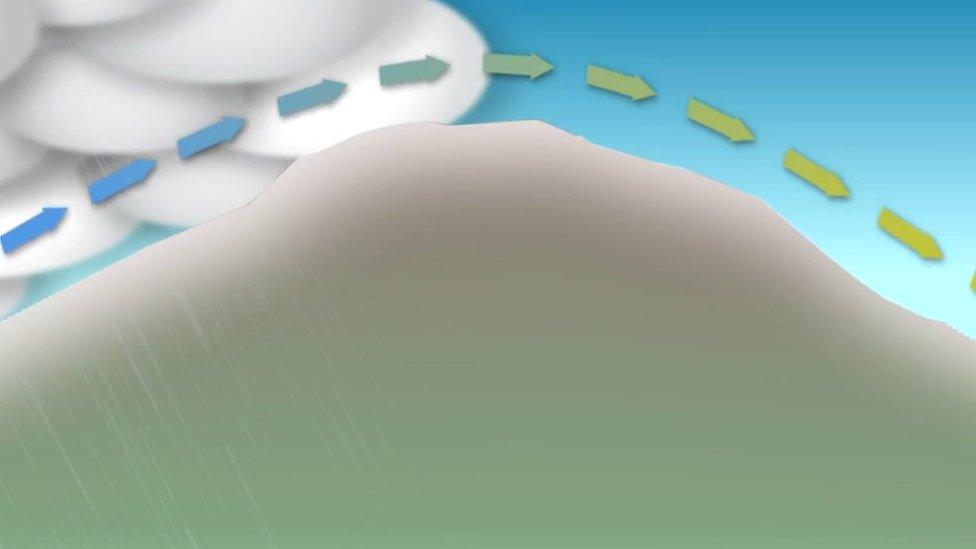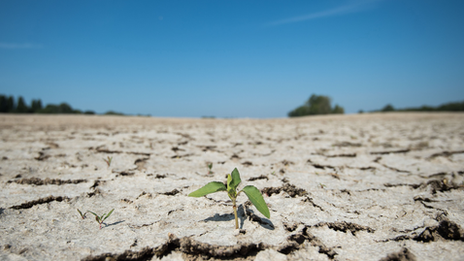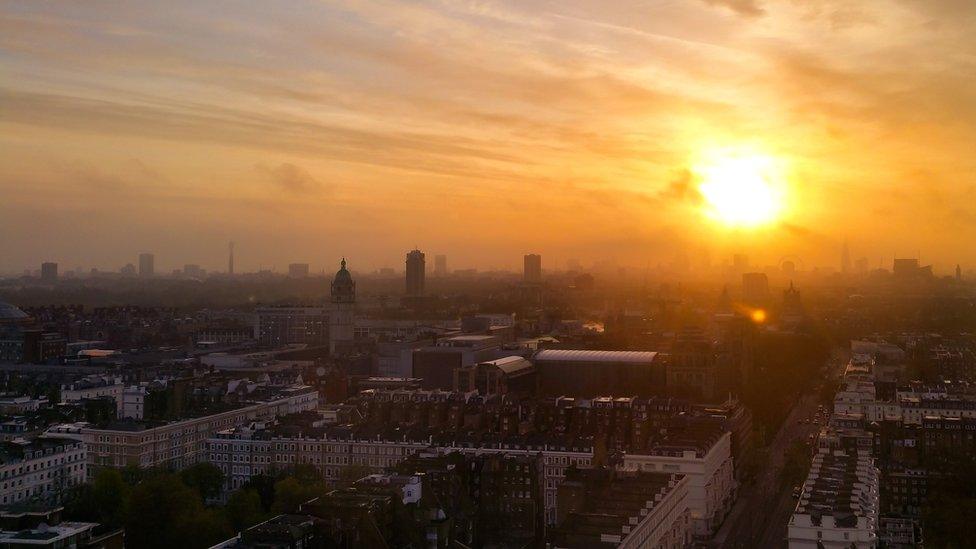UK weather: Why was it so warm on Saturday night?
- Published
Darren Bett explains what the Foehn winds are and how they can influence our weather
Temperatures reached 16.8C in northern Scotland overnight - the highest ever recorded for the UK this late in the year.
The figure, recorded by the Met Office, in Cassley, Sutherland at 03:00 GMT on Sunday, is the highest on record for 29, 30 or 31 December.
Northern Wales and north-east England were also unseasonably warm.
Forecasters said the "remarkable" overnight temperatures were down to a phenomenon called the Foehn Effect.
This pattern develops in mountainous regions, such as the Scottish Highlands, and results in wet and cold conditions on one side of a mountain and warmer and drier conditions on the other.
It occurs when moisture-laden, high humidity air is pushed over high ground by strong winds. As it rises, the air cools and condenses, forming cloud and rain.
Dry air then travels down the other side of the mountain, picking up heat as it goes and resulting in higher temperatures at ground level.

The air warms up as it descends the eastern side of the mountain
In the UK, this effect is commonly seen in eastern Scotland, north-east Wales and north-east England.
Other parts of the UK also saw unusually high temperatures overnight. For example, temperatures of 13.3C were recorded in Chillingham Barns, Northumberland and 11.5C in Rhyl, north Wales.
Alex Burkill, a meteorologist for the Met Office, said it was highly unusual to reach such high temperatures overnight in December.
"Getting temperatures of 16 or 17 degrees in December isn't all that unusual but it's remarkable that this was during the night," he told the BBC.
The current record for the highest daily maximum temperature in December in the UK is 18.3C, recorded in Achnashellach in the Scottish Highlands on 2 December 1948. However, this was recorded during the day.
- Published3 December 2019

- Published31 July 2019

- Published26 February 2019
